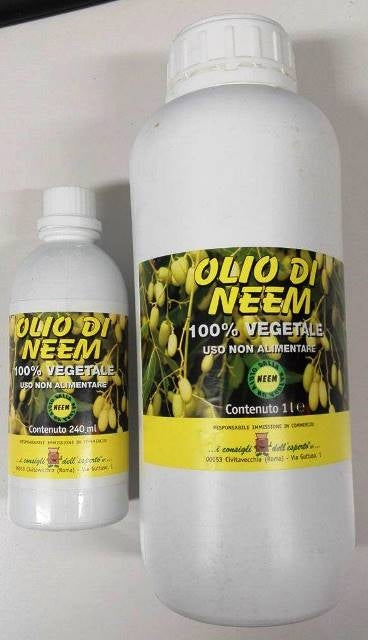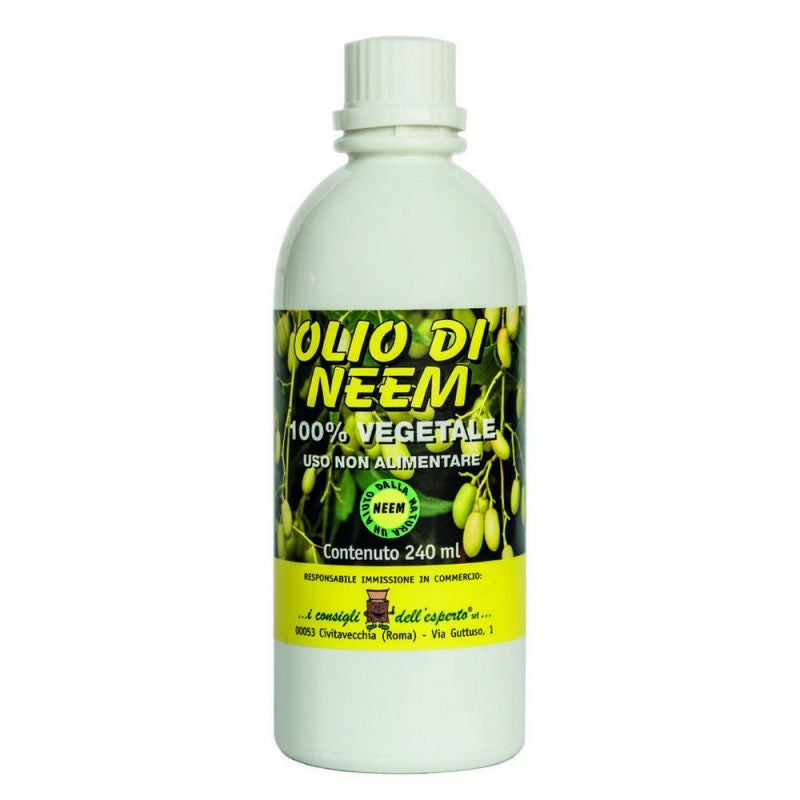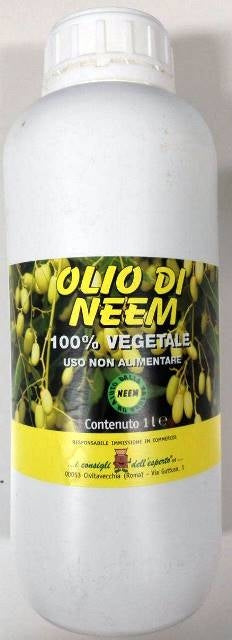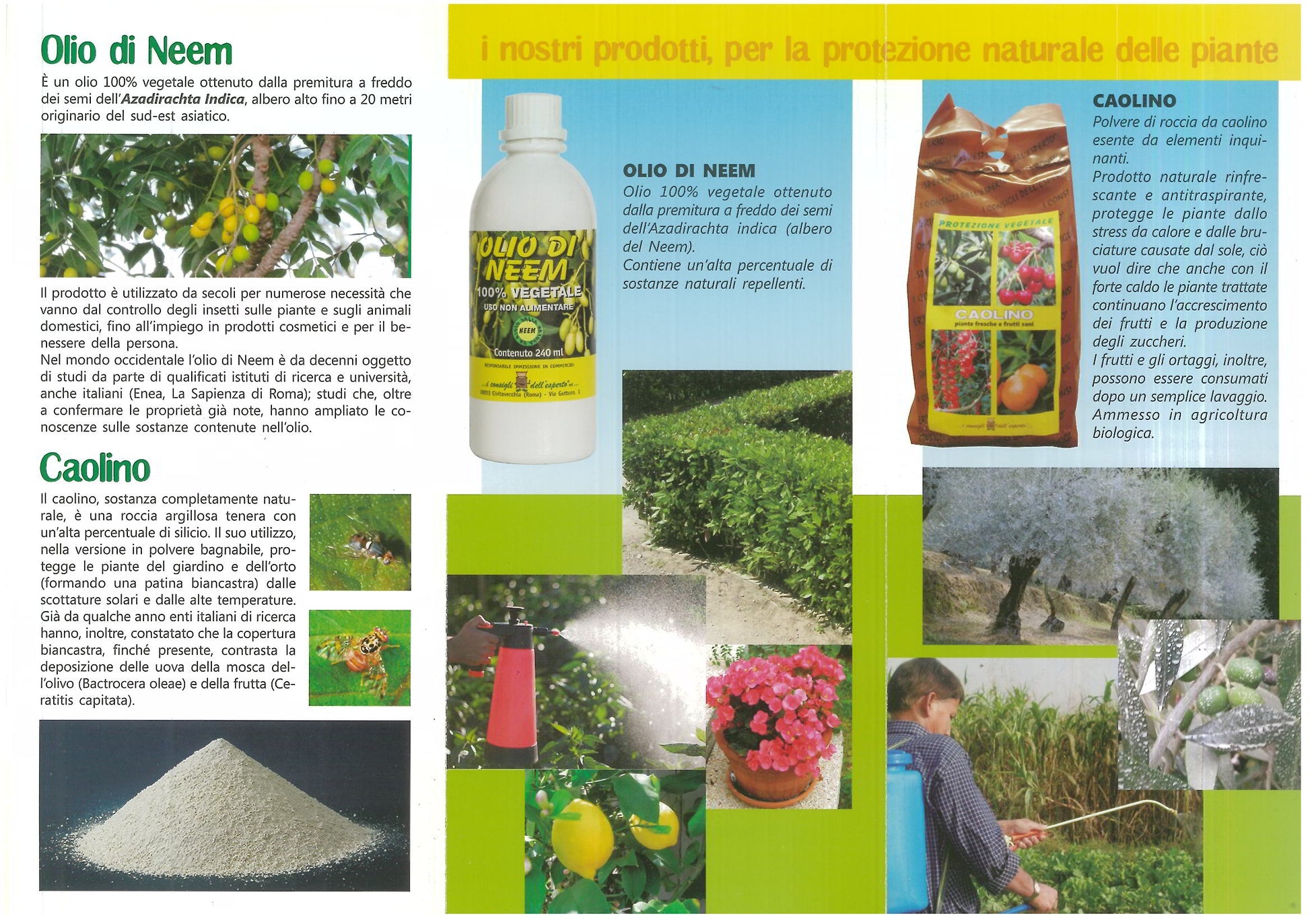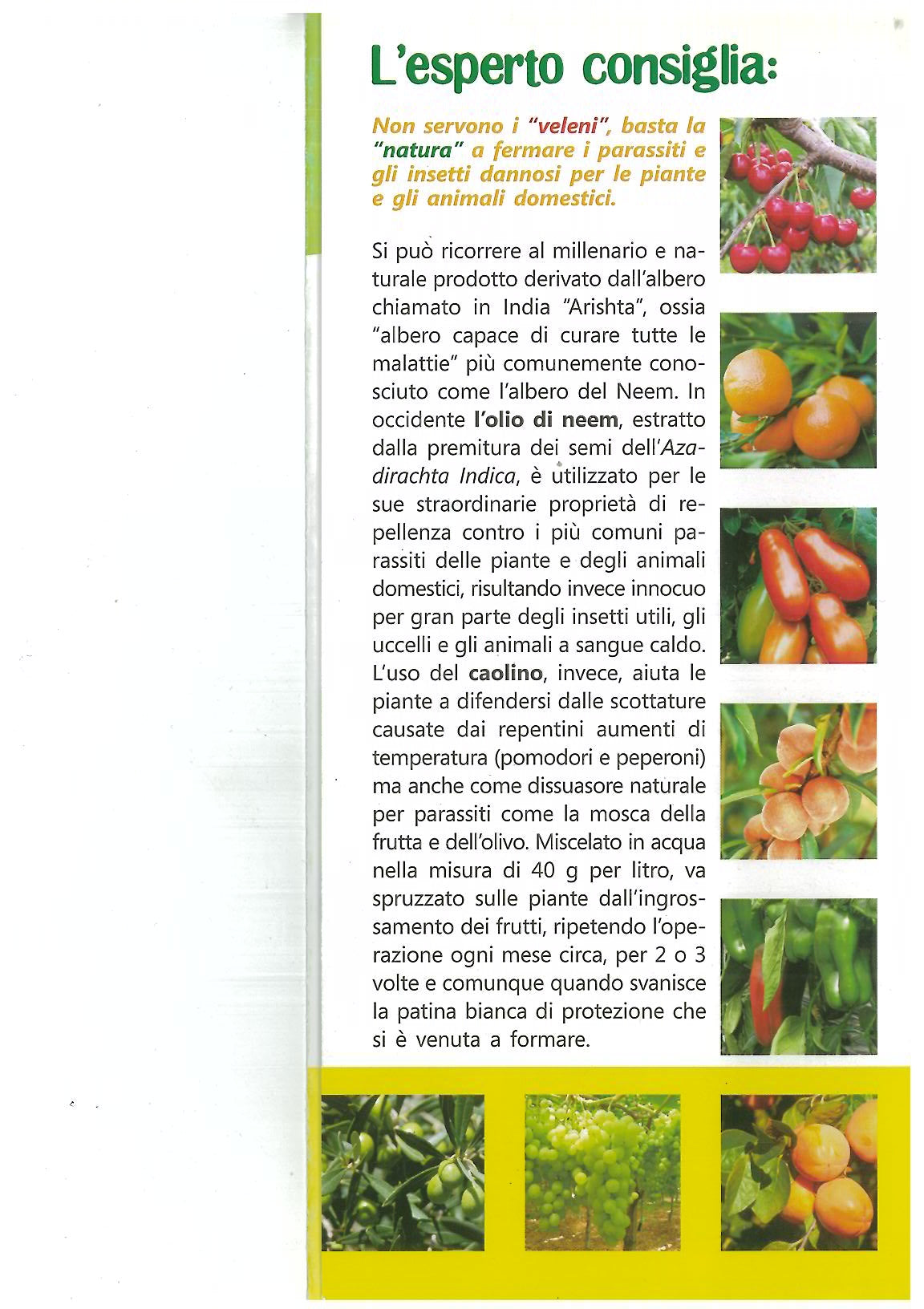NEEM OIL
Have a question?
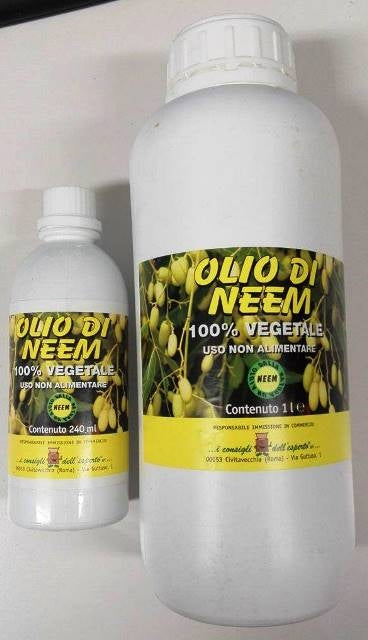
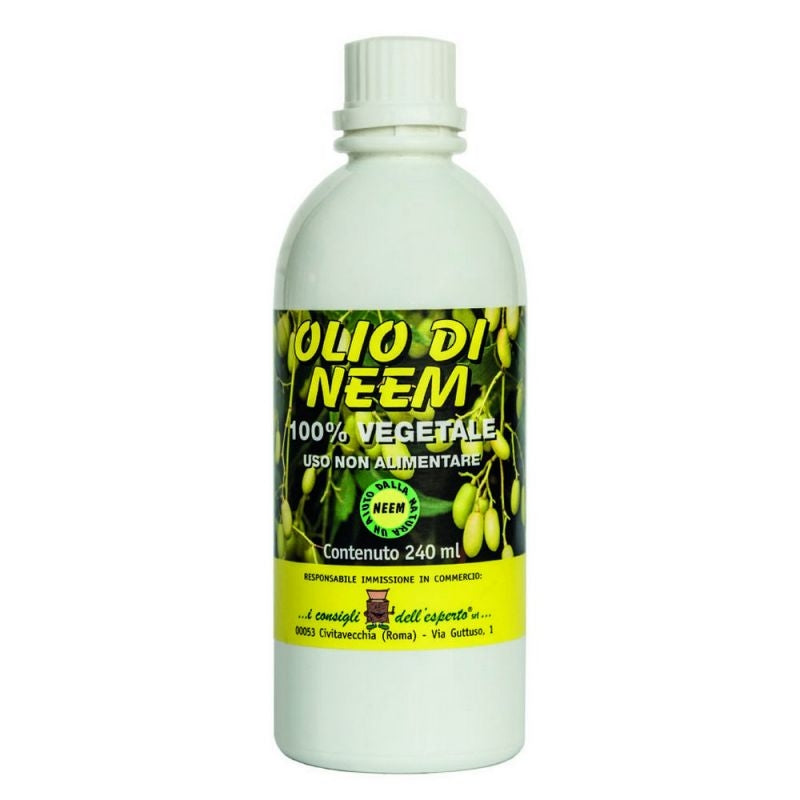
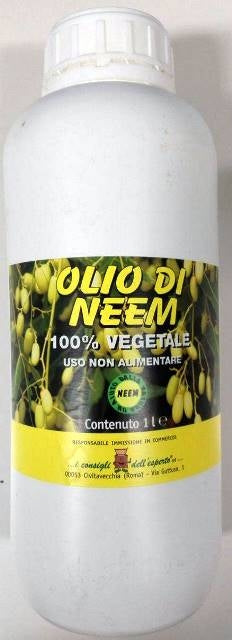
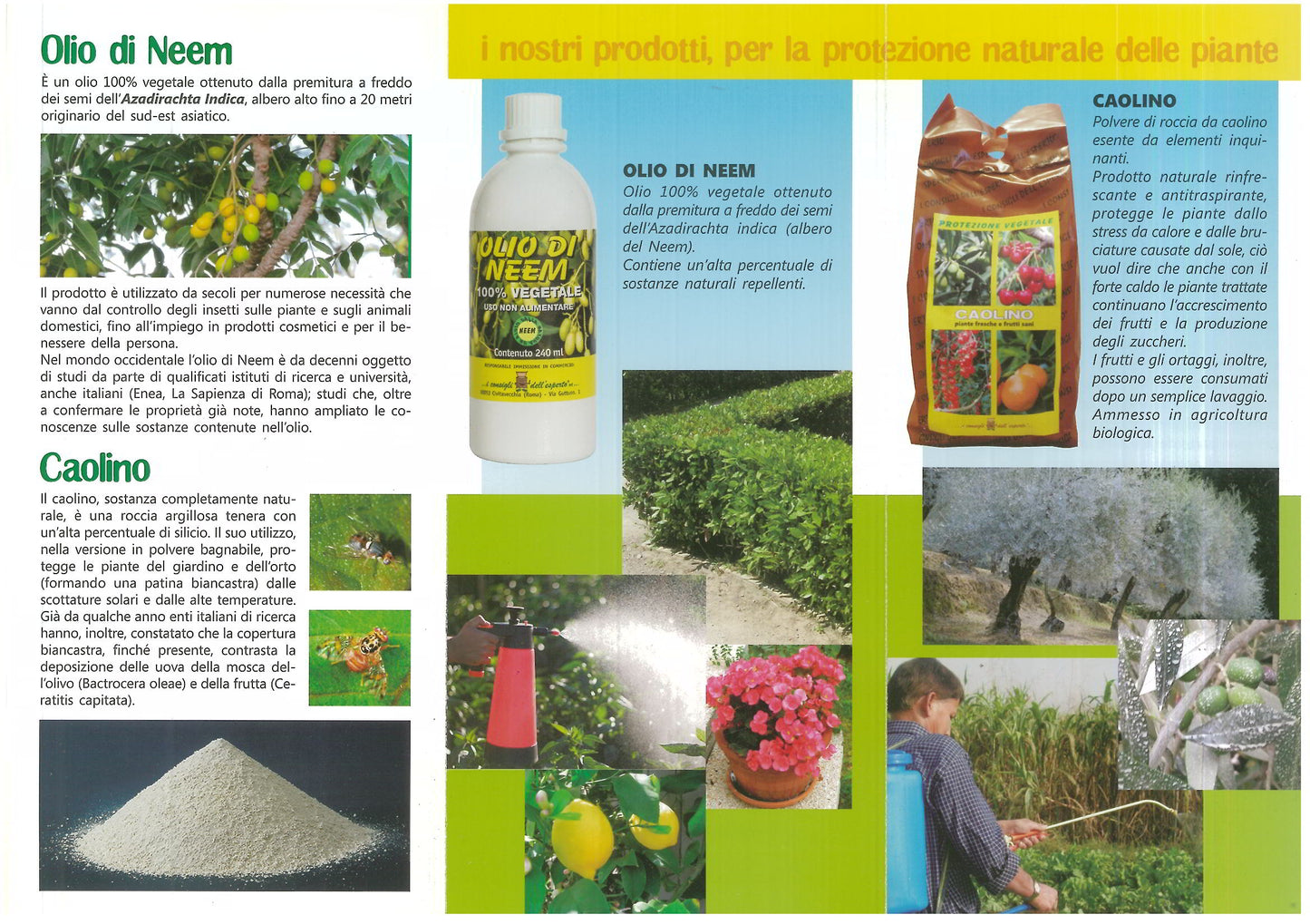
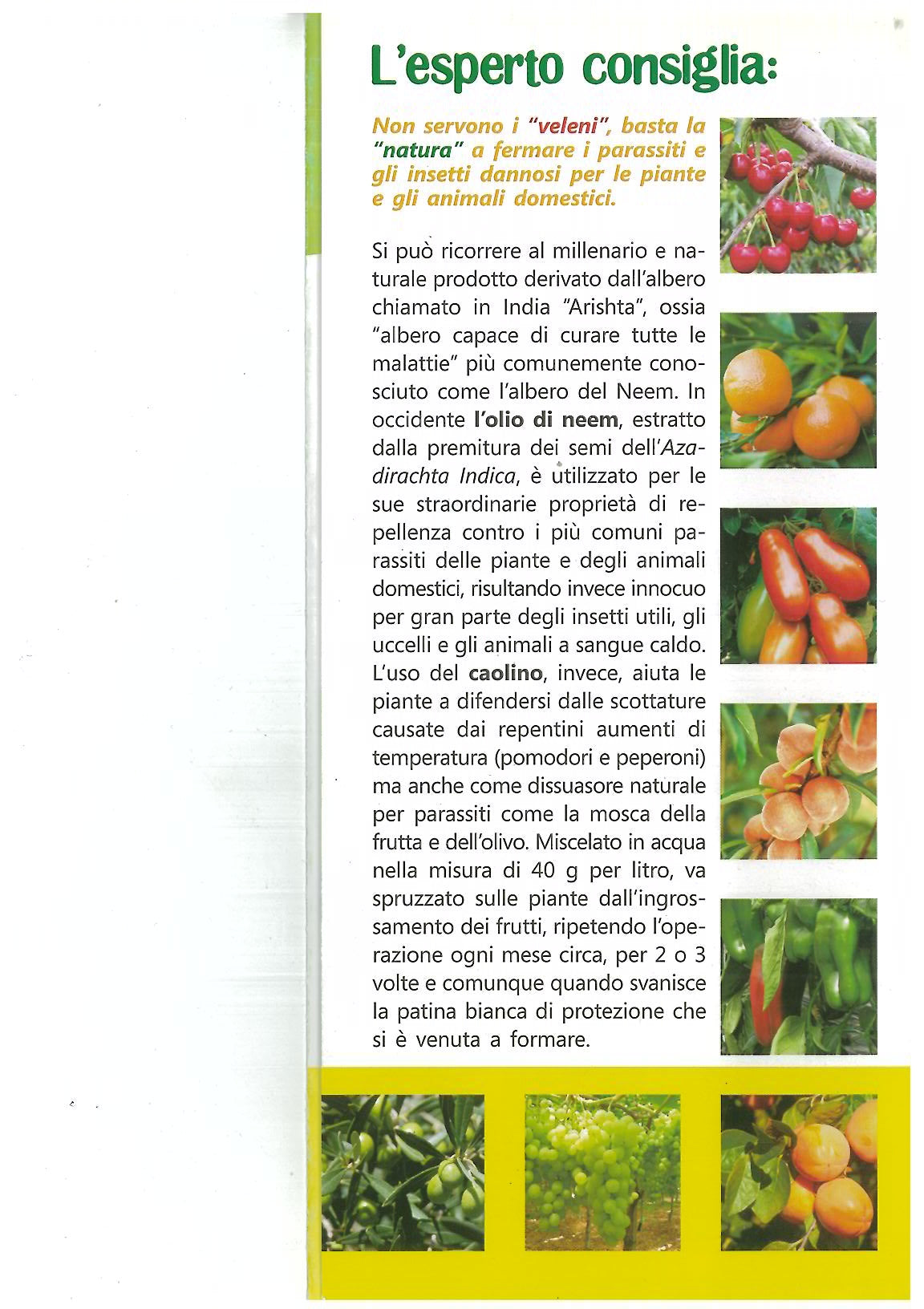
NEEM OIL
Dettagli
The Neem tree has been used in India for over 5,000 years in all its parts, fruit, leaves, seeds, roots and bark and is called the village pharmacy, the tree of health, the relief of the sick. In addition to a general presence throughout the Indian continent, both in the wild and in large cultivations, the Neem plant has been transplanted widely in Africa, in East Africa it is called 'mwa-rubaini' which means 40 cures, in Venezuela and other parts of South America and Asia.
Neem's complicated chemical arsenal (the primary active ingredient is azadirachtin) is effective against over 200 species of insects as well as various mites, nematodes, fungi, bacteria and even several viruses. Neem oil works mainly by ingestion, so it does not harm beneficial insects and is effective differently depending on the species, as it disrupts the hormonal regulations of insects, preventing them from reproducing or feeding.
- Eudermic action : thanks to its content of vitamin E and essential fatty acids it is perfect for the preparation of face and body creams with antioxidant and anti-aging power.
- Anti-inflammatory action : indicated for many gum diseases and pyorrhea. Helps in the treatment of pain from muscle strains, arthritis, rheumatism.
- Healing action : it is used for psoriasis and eczema, as it hydrates and protects the skin while counteracting the irritation, flaking and lesions that these disorders cause.
- Antibacterial and antiviral action : among the bacterial strains counteracted by Neem oil are salmonella typhus and staphylococcus aureus. In particular, the latter is responsible for the typical manifestations of acne. In toothpastes it helps prevent plaque and whitens teeth. Neem has given excellent results against Herpes Virus (lip and body).
- Antifungal action : effective against 14 types of fungi. The greatest efficacy and safety (no side effects) of use was found against Candida Albicans , infections caused by Trichophyton (hair, skin/nails, athlete's foot), Ringworm (caused by Epidermophyton).
- Insect repellent action : Neem oil is an excellent natural remedy against insect bites, especially to combat mosquitoes, but also against scalp parasites (such as lice) and mites. Even for animals it is an effective anti-flea and a completely ecological pesticide for plants, so much so that it is used in the biological fight against many parasites in agriculture, because it is a natural pesticide.
Pesticide/insecticide for plants
Mix with preferably lukewarm water , in an average ratio of 1:100 (1 liter oil and 99 liters water).
Spray directly on the leaves after sunset and with a light application (the product is photosensitive).
Repeat applications every 10-15 days .
- acute treatment: 2% in case of already active infestations
- preventive treatment: 0.5%
Practical note: As an emulsifier (to dissolve the oil well in water) we recommend both the Lavanoci decoction (which in itself has an anti-cryptogamic effect) but also EMa in addition to approximately 5%, this has been verified as an excellent combination (because at the same time it is restorative for the plant and the soil).
The product is harmless to humans, animals and plants and permitted in organic farming.
It acts by ingestion, therefore directly on phytophagous insects. Its effects are different from species to species, it can influence hormonal regulations, preventing moulting or reproduction. Evening applications are also recommended to prevent contact with bees and other pollinating insects which could still be damaged by direct contact with the product.
Neem oil is not a pesticide, the residues degrade completely in 4-8 days, a safety period of 3 days is recommended.
Treatment against aphid infestations
for a foliar treatment in case of ongoing infestation, prepare the following mixture (doses per hectare)
- 6 Neem oil
- 6 l ethyl alcohol (the pink one is fine)
- 600 l water - preferably lukewarm
The oil is a little difficult to dissolve, so it is easier if the water is already lukewarm, a solution could be to leave it in the sun for at least a day before making the mixture.
The treatment must be repeated at least once after 20 days.
Pesticide
Dilute a few drops of Neem oil in water and spray directly on pets' fur and bedding, or wet a piece of cloth with Neem oil to obtain an insect repellent collar.
The oil is also effective against mosquitoes, it can be applied to the pure skin to keep them away and is also useful for soothing the pain of bites. A few drops can be added to saucers with stagnant water to prevent eggs from being laid there.
Cosmetic applications
With a wide range of uses, Neem extracts are used in creams and soaps for its properties, in shampoo as an anti-dandruff. Furthermore, for aesthetic purposes, it is mixed with water and vegetable oils to keep hair healthy and shiny. But the skin is the greatest beneficiary of the effects of Neem, used as a base for preparations, creams and lotions.
According to John Conrick, author of "Neem the ultimate herb" Neem is as effective as a drug, without causing any sensitization to the skin with frequent use. It helps in solving problems of psoriasis, herpes, fungi, healing and keeps insects and mosquitoes away. And of course, Neem oil is exceptional against skin aging, thanks to natural hydration that prevents the formation of wrinkles and leaves the skin softened.
Creams, liquid soaps, shampoos and shower gels
Add a few drops of Neem oil (1-5 ml in 100 ml of product) and mix. Neem has antibacterial, hydrating and antioxidant effects. It also helps prevent dandruff and keeps lice away. Use only in natural products.
On the skin
Neem oil can be used pure by applying a few drops directly to the skin. Thanks to its hydrating, antibacterial and anti-inflammatory properties, Neem oil is indicated for acne problems, as an aftershave, in the case of insect bites, in the prevention of stretch marks and as a moisturizer in case of dry skin.
Advice : as with all substances, natural or otherwise, we advise you to first try a small amount of the product on a small portion of skin, in order to check that you are not hypersensitive or allergic to the substance.


